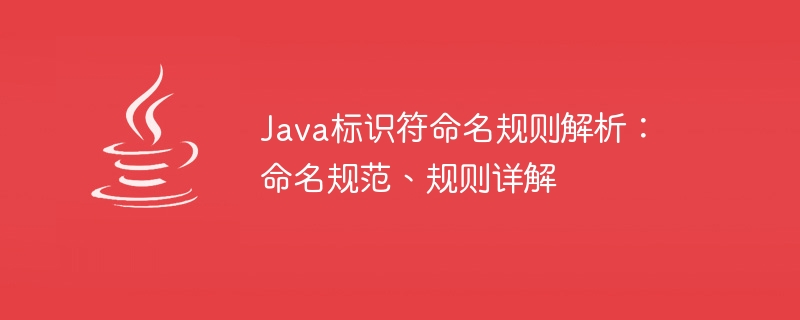

Java identifier naming rules analysis: naming specifications, detailed rules
Java identifiers are used to identify variables, methods, classes and packages The name. Java identifiers must follow the following naming convention:
Java identifiers can be of any length, but short and meaningful names are recommended.
Detailed explanation of Java identifier naming rules
// 正确的标识符 int myVariable; String myString; // 错误的标识符 int MYVARIABLE; String MyString;
// 正确的标识符 int my_variable; String my_string; // 错误的标识符 int myvariable; String mystring;
The Java keyword is a predefined identifier in the Java language and cannot be used as the name of a variable, method, class or package.
// 正确的标识符 int a; String b; // 错误的标识符 int abstract; String boolean;
Java built-in type names are predefined type names in the Java language and cannot be used as names of variables, methods, classes or packages.
// 正确的标识符 int a; String b; // 错误的标识符 int int; String String;
Java identifiers should be short and meaningful for easy reading and understanding.
// 正确的标识符 int age; String name; // 错误的标识符 int a; String n;
Java identifier naming convention example
// 正确的标识符 int myVariable; String myString; double myDouble; boolean myBoolean; // 错误的标识符 int 1myVariable; String MyString; double my-double; boolean my_boolean;
Summary of Java identifier naming rules
Java identifier naming rules can Helps you write readable, maintainable code. Following these rules will make your code easier to understand and modify.
The above is the detailed content of An in-depth explanation of the naming rules and specifications of Java identifiers. For more information, please follow other related articles on the PHP Chinese website!




